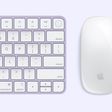Apple is widely reported to be embracing mini-LED display backlighting technology for some products next year, and a new report today by DigiTimes has named several of Apple's partners in the supply chain that are expected to benefit from the switch.

According to the report, Apple is set to launch its first mini-LED iPad Pro in the first quarter of 2021 and mass produce mini-LED MacBook Pro models in the second quarter, and a number of Taiwan manufacturers are building a "pre-emptive presence" in the Mini-LED segment in anticipation.
Apple's suppliers in Taiwan, including LED chip vendor Epistar, testing and sorting specialist FitTech, SMT service provider Taiwan Surface Mounting Technology, backlight board supplier Zhen Ding Technology, cooling solution provider Auras Technology and process equipment maker All Ring Technology, are all ready to gain growth momentum from upcoming shipments for Apple's miniLED-backlit devices, the sources said.
The sources continued that Foxconn Technology and Compal Electronics will share the assembly orders for miniLED iPad Pro devices, and MacBook Pro products adopting M1 chipsets will be mainly produced by Quanta Computer and partly by Foxconn.
The report goes on to note that among Apple's supply chain partners, TSMC will still benefit most from these devices, as the foundry has reportedly landed all the 5nm chip manufacturing orders for both Mini-LED iPad Pro and MacBook Pro models. Coupled with strong iPhone sales, 2021 is said to be looking good for TSMC, with first-quarter revenues likely to hit a new high, according to DigiTimes' sources.
According to Apple analyst Ming-Chi Kuo, production will begin on mini-LED displays for the iPad Pro in the fourth quarter of 2020, with a launch expected in the first half of 2021. Apple is also believed to be working on new 16.1 and 14.1-inch MacBook Pro models with mini-LED displays, which are expected to be released during the first half of 2021.
Mini-LED displays offer impressive wide color gamut performance, high contrast and HDR, and local dimming, and Kuo says adoption of the tech will "significantly improve productivity and the entertainment experience."
All future MacBook Pro models are expected to use Apple Silicon chips now that the first Apple Silicon Macs with M1 chip are available.




















